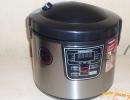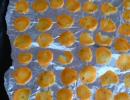Why do many babies start to hiccup after feeding?
Every parent wants to see their baby healthy and strong, so they worry about every little thing from the very first day. Many parents do not find a place for themselves when the baby is sick, capricious, or even hiccups, because they do not know what can provoke such a condition in infants. In order to adequately respond to hiccups in a newborn baby, you need to understand why it can happen, whether it is dangerous, and how to eliminate this phenomenon.
Why do many babies start to hiccup after the next feeding? Before contacting a doctor for help, you should find out which condition is dangerous and which is a consequence of poor nutrition.
If the baby hiccups for no longer than fifteen minutes, there is no need to worry. Such hiccups do not pose a danger or threat to the child. The hiccups will quickly go away on their own. If the baby hiccups very often, and the attack lasts more than 15 minutes, you should seek the help of a pediatrician, since functional, organic failures and disorders are most likely observed in the baby’s body. Frequent hiccups in newborns in rare cases can be a signal from the body about the presence of the following pathologies:
- spinal cord injury;
- pneumonia;
- ailments of the gastrointestinal tract.
A pediatrician will help determine the true cause. Treating such a deviation on your own is very dangerous.
Frequent hiccups cause discomfort to the child, he begins to be capricious. As a rule, a child hiccups after feeding or during hypothermia. There are other factors that cause hiccups.

A newborn hiccups after feeding for the following reasons:
- the baby is very thirsty;
- the baby is cold or scared (I bright lights, loud sounds);
- One of the main reasons is considered to be overeating. Food stretches the stomach, which puts pressure on the diaphragm, causing contraction;
- the child hiccups after eating when a lot of air with milk enters the body;
- Intestinal bloating can trigger hiccups. Since gases collect at the top of the intestines, they press and displace it;
- if the baby experiences discomfort in the intestinal area, he begins to strain so that the gases exit through the anus, but they are directed upward, knocking down the diaphragm, resulting in hiccups;
- the cause may be breathing problems, which has to do with the nervous system. In some cases, when laughing or other emotions, the child is not able to exhale or inhale. As a result, there is a disruption in the respiratory rhythm and hiccups occur.
Giving help
To avoid hiccups, you need to feed your baby properly. Feeding should be carried out without haste in calm, comfortable conditions. If your baby starts hiccupping, you can give him a small amount of water or put him back to the breast.
It is necessary to feel the child's arms and legs. If they are cool, your baby may be cold. Dress him warmly, cover him with a blanket, and the attack of hiccups will stop. If a child begins to hiccup due to fear, try to protect him from strangers, loud sounds and bright lights. Hiccups provoked by light or excessively loud music go away immediately after the source is eliminated. You can hold the baby close to you, talk to him, walk around the room and rock him in your arms. As a result of such actions, the baby will be able to be distracted, and the hiccups will disappear.

If hiccups appear as a result of air being trapped during feeding, it is enough to hold the baby close to you in an upright position for 10-15 minutes, and the attack will stop. This position will help quickly remove excess air. It is necessary to check the bottle and pacifier. If the hole in the nipple is too large, it will be difficult for your baby to swallow quickly and he will swallow excess air. The problem may occur due to incorrect positioning during feeding. Try to create the most comfortable conditions for the baby, put him to the breast correctly, and you may be able to avoid hiccups.
Try not to overfeed your baby, as this can also cause hiccups. Moreover, if the phenomenon occurs regularly, hiccups can become chronic. To avoid this, try to feed your baby often, but in small portions.
If none of the suggested methods help, give your child chamomile infusion or lemon juice. It is enough to drop a few drops under the tongue to get rid of the unpleasant condition.
Sometimes children may hiccup in their sleep, which occurs due to contraction of the diaphragm and closure of the vocal cords. The result is a sound that frightens parents. Most often, the hiccups go away within ten minutes, but sometimes the attack can drag on. The baby is breathing heavily because there is a lack of oxygen, and he may wake up crying. Parents should not panic in such situations. You need to take him in your arms, wrap him in a blanket, and hold him close to you. If it doesn't help, give him warm water or breastfeed.
Pediatrician consultation

Many parents wonder whether it is worth visiting a doctor if their baby is bothered by hiccups? If this phenomenon is not long-lasting, then you can do without consulting a doctor. If it occurs frequently and lasts more than fifteen minutes, be sure to visit a doctor, as it is necessary to find out the cause of the pathology. To do this, the doctor will examine the baby and schedule an examination. Seizures may be the result of neurological disorders and special treatment may be required.
If hiccups are accompanied by coughing, regurgitation, shuddering and restlessness, it is recommended to visit a gastroenterologist or pediatrician. This condition may be a signal of the presence of gastroesophageal reflux. If, against the background of these symptoms, an increase in the baby’s body temperature is observed, medical attention is needed.
To avoid bouts of hiccups, you should normalize your diet. The interval between feedings should be 1.5-2 hours, and the duration should be 20-30 minutes. Before feeding your baby, place the baby on your stomach to relieve gas and colic. After feeding, the baby should be held upright. When a newborn hiccups, it is necessary to monitor him in order to provide timely assistance if necessary.






